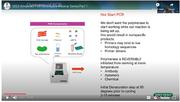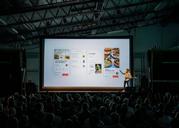Minimizing Your Website's Bounce Rate
Google uses AI to process its search results, ranking search listings by consulting metrics such as the amount of time users spend on a site and page bounce rate to determine visitor interest and content relevance. Bounce rate captures the number of visitors to your website who land on a page and then leave without clicking through to other pages on the site. Ideally, your site and all its pages should have a low bounce rate, meaning that the majority of visitors are moving throughout the site, rather than only viewing the landing page.
Reasons your site's bounce rate might be high include:
- There is a technical issue preventing user access.
- Your website is not loading quickly, causing frustration.
- The site content does not meet visitor expectations.
- Site design is creating an undesirable user experience (UX).
Technical Issues
To avoid the first two issues, be sure to regularly check your site for technical hangups and use a free website speed test to determine your site's current speed. Once you have ruled out a tech problem, you can optimize site content and design to decrease your bounce rate further.
Better Content
Relevance and quality are the two pillars of strong content. Your site content should always be well written, credible, and directed at your target audience. Another factor that may influence search listing placement is content freshness. Regardless of the rankings impact, keeping your website up-to-date and regularly adding new content is a great way to ensure you are getting visitors to engage with your content and return.
Better Design
To improve UX, optimize your site design with a few easy strategies. First of all, be sure to use effective internal linking. Links that direct users to other pages of your website are called internal links. These can be effective ways to connect related content and suggest relevant resources, but it is important that they do not disrupt the UX.
Another helpful element for directing users is strong use of headers and subheaders to guide readers through dense text. This is key for making relevant sections easily identifiable and helpful when used in combination with internal linking on pages that index other parts of the site. Overall, clear navigation and search features will keep users from getting lost and promote movement throughout the site.
New ATE grantees interested in creating a free website to showcase their work should check out ATE Central's Microsite Service for more information.








